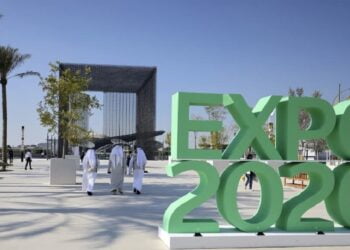Palestinians appear to have been abandoned by the international world as prospects for a two-state solution fade.
Carlos, a masterwork by French filmmaker Olivier Assayas, serves as a reminder of the symbolism, geopolitics, and global significance of the Palestine Liberation Movement throughout the 1970s and 1980s. It was a cause that sparked passions all throughout the world.
On the 75th anniversary of the Nakba, the world he portrayed in his movie seems to have largely vanished, leaving us to wonder if Palestine is still a cause for celebration. This includes the political climate, the strong and widespread pro-Palestinian sentiments, and the centrality, whether real or perceived, of the Palestinian struggle.
Does it still have any bearing on international relations? If so, how? If not, why not?
The response first appears to be unfavorable. Israeli occupation is more oppressive than ever. The most extremist coalition government in Israel’s history is governed by religious zealots and supporters of Jewish supremacy. Through ruthless government and settler violence, Israel is escalating the unlawful colonization of Palestinian territory while undermining the rule of law and even its own status quo.
One of the few imperialist nations still in existence is Israel. Additionally, it is an apartheid state that has the highest disregard for UN resolutions and even the barest norms of civilized behavior, and the US, its co-defendant, permits it to continue to operate with impunity.
Western governments have increased cooperation with and support for Israel despite the fact that the situation is only getting worse. By now, it should be obvious that there is no chance the US will apply any genuine and long-lasting pressure on Israel to alter its course.
The same is true for other western nations that don’t seem eager to end aid and cooperation with Israel, or even just to threaten to do so. The two-state solution will only receive lip service from nations like France, Britain, Germany, Ireland, and others.
Zero effect
These aimless announcements zeroly affect the really three gatherings included: Israel, the US and the Palestinians. Nor meaningfully affect what is happening on the ground, described by a steadily growing colonization that has proactively decreased what should be a future Palestinian state to barely anything – and they’ve had even less impact on moving towards a drawn out political arrangement.
This blend of complicit detachment, stunning weakness and fraud is currently considerably more remorselessly apparent, as it remains in sharp difference to the decided front the West has consistently set up contrary to Russia’s attack of Ukraine. This resolve immediately disintegrates when confronted with the Palestinian people’s decades-long suppression and oppression.
As of late, the French Public Gathering opposed a goal that denounced Israel’s politically-sanctioned racial segregation system, with both conservative and left-wing lawmakers collaborating to dismiss the text.
France, whose courageous positions on Israel and opposition to the US invasion of Iraq in 2003 earned it respect, empathy, and admiration throughout the Arab world, now appears to be going the extra mile for Israel by enacting domestic policies that are anti-Palestinian: equating anti-Zionism with antisemitism at the highest levels of the state, criminalizing boycott campaigns, and taking action against pro-Palestinian groups.
The West gives Israel more unconditional support the more extremist, undemocratic, racist, violent, and oppressive it becomes.
Even though diplomats continue to hesitantly refer to the idea of a two-state solution, Palestinians have been virtually abandoned by the West, despite receiving some humanitarian aid that is a fraction of what Ukraine has received in a single year.








